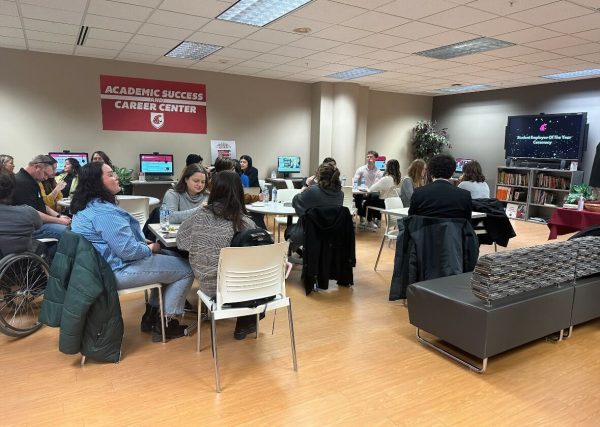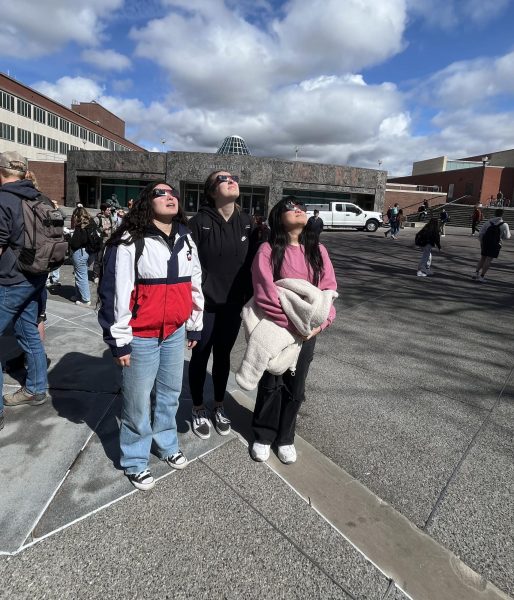Tasting spuds for research
September 13, 2013
In the course of his research, WSU graduate student Rhett Spear has tasted between 20-30 different kinds of potatoes.
Spear’s research focuses on developing alternative options for the most common potato varieties. He was recently awarded a $10,000 scholarship from the National Potato Council for his studies.
His research revolves around finding alternatives to the most common type of potato, which is called the Russet Norkotah, Spear said.
“If you go to the store, you’ll probably find that,” he said.
This type of potato is particularly susceptible to Potato Virus Y, Spear said. This disease causes early death and small potatoes in strange shapes. This is one of the problems Spear’s research hopes to fix.
Spear’s project involves looking for alternative varieties of potatoes to grow and sell. He works at a research station in Othello, where he weighs potatoes, measures the qualities they possess and records the data. Some potatoes move forward to a taste-testing station at WSU.
“We’ve seen some progress, some varieties that perform better,” he said. “It’s just going forward.”
The potato Spear and those working with him are trying to find, would have a high yield, produce lots of potatoes in the same size (about 8-12 ounces), and be oblong in shape.
If such a potato was created, Spear said they would present the growers with their data.
“But in the end, it’s up to them whether they want to grow it or not,” he said.
Spear has been working on these projects for more than three years, he said. In 2011, he began a trial that evaluated the bruise resistance, storability, economic value, and consumer preference of 12 separate varieties of potato, according to the National Potato Council.
“Each year, NPC awards one $10,000 scholarship to a graduate student pursuing advanced studies that will improve the future of the potato industry,” according to the National Potato Council. “Final scholarship selection is based on academic achievement, leadership abilities, and the potential commercial value of the applicant’s academic work.”
When Spear first got the letter telling him he received the award and would need to provide his name, Social Security number and address, he was suspicious of a scam. But after verifying the sources and finding out the scholarship was legitimate, Spear was pleased.
This will likely be Spear’s last growing season, he said. He plans to finish his dissertation and work in the industry for some time. But the project to find alternative varieties of potatoes will continue, he said.
Spear gave credit to Mark Pavek, the associate professor and research extension horticulturist who worked with him.
“The projects Rhett has implemented could favorably alter the cultural practices and variety selections of U.S. potato growers,” Pavek told the National Potato Council. “I have no doubt that Rhett will be in high demand when he leaves my program.”
Spear became interested in this type of research growing up on a farm, although he did not grow there. He said his favorite thing about this work is having the ability to work outside.
Students interested in testing potatoes are welcome to attend two upcoming taste-testing sessions on Nov. 6 and Nov. 8. The first 50 people will get to try the upcoming varieties of potatoes.
“It goes from ten in the morning until we run out of potatoes,” Spear said.





















